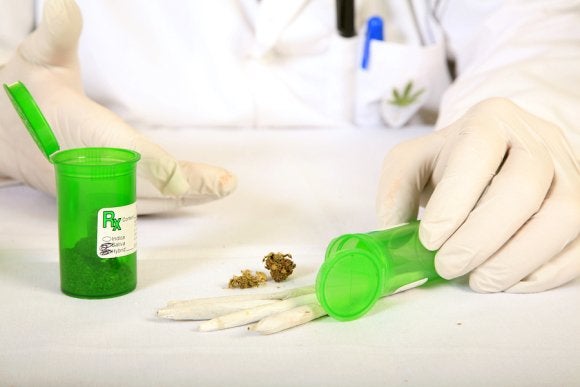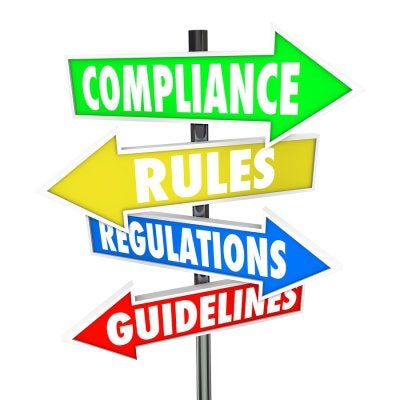-
Preparing for Your Meeting with a Lawyer
If you’re facing legal troubles and seeking legal representation, make sure you are prepared for your first meeting with a lawyer in Rockville . Being unprepared can be a waste of time for both you and the lawyer, and it may even have an impact on the outcome of your case. In addition to basic contact information, you’ll want to provide your lawyer with a chronological summary of the facts in your case. Also make sure to bring any documents that relate to your legal matter, include contracts, photographs, accident reports, witness statements, and correspondences. Even if you don’t believe a document to be important, your criminal defense lawyer may find it incredibly valuable in mounting your legal defense.
It can also be helpful to prepare a list of goals that you want the lawyer to help you achieve. If you have any questions about what you should bring, call the defense attorney prior to your initial consultation.

-
Understanding Maryland’s Medical Marijuana Regulations [INFOGRAPHIC]
There are 23 U.S. states that have laws legalizing medical marijuana, with the addition of Washington, D.C. and Guam. Maryland passed a medical marijuana bill in 2014 after much debate. Currently, there are not any medical marijuana dispensaries open in the state, but it’s expected that licenses will be granted in 2015. Neither patients nor caregivers are legally allowed to grow medical marijuana themselves; instead, it must be provided by a state-licensed dispensary. Growers must pay $250,000 for a two-year license, while dispensaries have to pay $80,000 for the same. Take a look at this infographic to learn more about regulations on medical marijuana in Maryland, and how they stack up to other states. If you are considering getting into cannabusiness, it’s easy to see why you need a lawyer with expertise in marijuana legalization in Rockville . Please share with your friends and business associates.

-
What Do Prospective Dispensary Owners Need to Know About Maryland’s Medical Marijuana Law?
When lawmakers signed legislation to legalize medicinal marijuana in Maryland last April, they created deadlines for regulations to be completed. As a result, the Marijuana Policy Project became responsible for creating guidelines for licensing doctors, growers and distributors in Maryland. Even though the Marijuana Policy Project didn’t meet this deadline, they still currently offer guidance for new Maryland cannabusiness owners on how to meet state and federal obligations.
In October, the Marijuana Policy Project hosted an information seminar for prospective cannabusiness owners in Maryland. This seminar allowed physicians as well as prospective growers and dispensers to learn what was needed to obtain cannabusiness licenses. In this video, Rachelle Young of the Marijuana Policy Project and prospective cannabusiness owners describe their experience with the seminar and Maryland’s recently passed medical marijuana legislation.
-
Examining the Issues Surrounding Cannabusiness Regulations in Maryland
In 2014, Maryland lawmakers voted to approve prescription of medical marijuana to certain patients. Currently, a Maryland commission is developing the logistics for licensing Maryland marijuana growers and dispensaries. In addition, the Maryland cannabusiness commission has drafted details of what growing and distributing medical marijuana will look like throughout the state.
The Maryland commission’s draft regulations address issues of prescribing medical marijuana to qualified patients, qualifications for people to grow marijuana, and prescription marijuana labeling requirements for dispensaries. Even though legalization of marijuana in Maryland has considerable support, people want to ensure that the state can successfully restrict access to minors. In the early days of Colorado’s medical marijuana legalization, security was a major issue for licensed marijuana facilities. Learning from other states’ experience in implementing medical marijuana laws, Maryland’s draft rules will require facilities to have security plans and to comply with training procedures and inspection schedules. Even though the commission detailing cannabusiness in Maryland is currently working on logistics, it is unclear when doctors, growers and dispensaries will begin receiving licenses.

-
Founding a Cannabusiness: What You Need to Know
Following the legalization of cannabis in Maryland , entrepreneurs across the state have shown interest in participating in the medical cannabis industry. Even though the Maryland Medical Marijuana Commission is still shaping the medical marijuana dispensary system for the state, Maryland cannabusinesses still need to adopt the existing regulations and prepare for future changes. Michael S. Rothman is a medical marijuana lawyer in Rockville who helps Maryland entrepreneurs structure their cannabusinesses according to Maryland law.
Choosing a business model
There are two business model options for those looking to enter the medical marijuana business in Maryland—opening a dispensary or cultivating marijuana. Currently, Maryland officials are ready to approve 15 legal growers within the first year. More growers may be approved moving forward. In order to become a certified grower, one must undergo thorough background checks. In addition, the state will closely oversee all approved growers. Maryland will allow distribution of medical marijuana to approved patients through highly regulated dispensaries. The Maryland Medical Marijuana Commission will likely grant dispensary licenses beginning in 2015.
Forming a cannabusiness
In order for someone to begin a cannabusiness in Maryland , he or she must first consider the location, supply, and business model. This will ensure that a cannabusiness owner receives the proper licenses. A partnership agreement can help the business succeed because they are mutually beneficial to growers and dispensary owners. There will likely be significant changes when Maryland’s medical marijuana program is actually running. The best way for a new cannabusiness owner to adapt to these changes is by consulting with a Maryland medical marijuana lawyer.Hiring a medical marijuana lawyer
Whether someone is interested in opening a medical marijuana dispensary or cultivating marijuana for medicinal purposes, it’s important for him or her to first consult with a medical marijuana attorney. A medical marijuana lawyer can help a new business owner comply with state and federal law. He or she can also represent a cannabusiness owner in court if the need arises. A medical marijuana lawyer can also provide clients with business formation goals, giving advice on how to succeed in this emerging business field. -
What Might the Future Hold for Marijuana Laws in Maryland?
Although recreational marijuana use isn’t yet legal in Maryland, entrepreneurs are already planning to launch cannabusinesses throughout the state. Prospective cannabusiness owners have been busy looking for investors to fund the significant start-up costs it takes to establish this type of company and they’re searching for employees who are knowledgeable about cannabis.
As you’ll learn by watching this news clip, legalization advocates are hopeful that the legalization of cannabis in Maryland is on the horizon. In fact, Delegate Curt Anderson recently sponsored marijuana laws that would legalize the drug for recreational use. Del. Anderson opined that alcohol and cigarettes are far more dangerous than recreational marijuana, so it only makes sense to legalize the drug.
-
What New Maryland Cannabusiness Owners Can Learn from Seattle’s Marijuana Businesses
Since the legalization of recreational marijuana in Colorado and Washington was approved, the cannabusiness industry has been booming and is expected to continue its rapid expansion. However, unlike Colorado, cannabusiness owners and regulators in Washington have been moving more slowly and cautiously. They want to make sure that they cover all the bases before opening the floodgates to this industry and cannabusiness owners in Maryland can take a page out of their book.
Be a Good Neighbor
Maryland cannabusiness owners will have to deal with the stigma that comes from peddling a previously illegal drug. In all likelihood, not all businesses will welcome having marijuana dispensaries on their block. It’s essential that cannabusiness entrepreneurs learn how to be good neighbors, in part by cultivating the right image for their company. Entrepreneurs can present themselves as professionals, rather than mimicking a frat house mentality.
Send the Right Message with Interior Design
Cannabusiness entrepreneurs in Washington are learning that it pays to consult an interior designer when setting up shop. Creating a positive ambience within the dispensary is critical for helping customers feel welcome. This is particularly true for customers who are a bit nervous about trying marijuana for the first time. In practical terms, this may mean avoiding the temptation to hang Bob Marley posters on the walls and instead arranging the interior much like any other retail shop.Partner with a Financial Institution
Marijuana businesses in Colorado and Washington have already run across several major stumbling blocks, one of which involves banking. Until recently, federal regulations stated that financial institutions and their employees could face lengthy prison sentences for dealing with cannabusinesses because marijuana is still illegal under federal law. Although federal regulations have now changed to allow financial institutions to deal with cannabusinesses that are legal under state law, it’s still a touchy subject for banks and credit unions. They may be hesitant to work with marijuana entrepreneurs. This means it’s essential for cannabusiness owners to form a strong partnership with a financial institution. -
What Decisions Do Cannibusinesses Need to Make to Set Up?
To take advantage of rapidly evolving Maryland marijuana laws and the expanding climate of acceptance regarding cannabis , prospective cannabusiness owners need to spend plenty of time planning how to get a foothold in this burgeoning industry. A medical marijuana lawyer can help new owners of marijuana dispensaries and other cannabusinesses make critical decisions regarding the formation of their new entities. First, entrepreneurs must decide exactly which type of business they wish to launch. The state will begin approving new growers and dispensaries.
Once entrepreneurs have chosen the type of cannabusiness they wish to pursue, they must plan the structure of their business. Like any other type of business, cannabusiness entrepreneurs must decide where to locate the place of business, how to obtain the proper licenses, how to remain in compliance with changing laws, how to supply the business, and how to address security concerns. Entrepreneurs will need to determine their business models and decide exactly how to run their companies, such as with a partnership or other entity.

-
It’s Legal-Now What? Get Started in Cannabusiness
23 states in the U.S., plus Washington, D.C., have passed laws to make medical marijuana use legal. When you look at the numbers, it’s easy to see why more and more states are choosing to legalize medical marijuana. According to one report from November, 2013, the national legal medical marijuana market is worth about $1.53 billion—and is expected to be worth $10.2 billion in five years. Legalization of cannabis in Maryland happened just recently, and could mean upwards of $134.6 million in tax revenues each year. Now is the time to think about starting your own medical marijuana dispensary in Maryland. You’ll need to make sure you are doing business in accordance with all governmental regulations, so trust a medical marijuana lawyer to be part of your team. Check out this infographic to learn more about the movement to legalize cannabis, and how you can get started in cannabusiness. Please share with your friends and fellow entrepreneurs.

-
A Look at the Controversy Over Proposed Fees for Cannabusinesses in Maryland
The journey to legalize medical marijuana in Maryland has been anything but smooth. Setting aside the controversy of the MD marijuana laws themselves, many people are upset with the way in which the state plans to regulate cannabusinesses. Although HB 881 officially took effect on July 1, 2014, the Natalie M. LaPrade Medical Marijuana Commission has yet to finalize regulations regarding the exact way in which cannabusinesses will be handled in the state. For example, the commission recently proposed a schedule of fees for marijuana cultivation facilities and medical marijuana dispensaries. Public reactions to the proposed fees have been largely negative.

Proposed Fees
The commission has planned to issue 15 licenses to medical marijuana growers to start with. Its members recently announced that they might charge these growers as much as $125,000 in fees. While this sum seems exorbitant, it might have been met with less criticism had it been a one-time fee. However, the panel recommended making it an annual fee. Prospective cannabusiness owners who plan to open a medical marijuana dispensary can expect comparatively lighter fees – $40,000 per year. However, these fees are on top of the prohibitively expensive application fees, which can run as high as $6,000. Additionally, those who wish to start a Maryland medical marijuana business must provide thorough documentation with regard to the sources of their capital.Proponents
The General Assembly has noted that taxpayer money will not be financing the fledgling medical marijuana industry in Maryland. It’s been estimated that about 45,000 patients per year might apply for a patient ID card. The program to evaluate patient eligibility, inspect growers and dispensaries, and launch a comprehensive public education campaign is expected to cost about $3.5 million per year. Proponents of the proposed fee schedules note that the hefty fees for growing and dispensing medical marijuana are necessary to partially fund the cost of the program.Opponents
However, opponents note that the sheer amount of the annual fees could force small medical marijuana dispensaries and other cannabusinesses out of the industry. They have also noted that the fees seem out of alignment with the projected demand for the product, and that prohibitively expensive operating costs could fuel black market sales.

